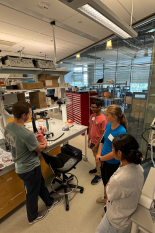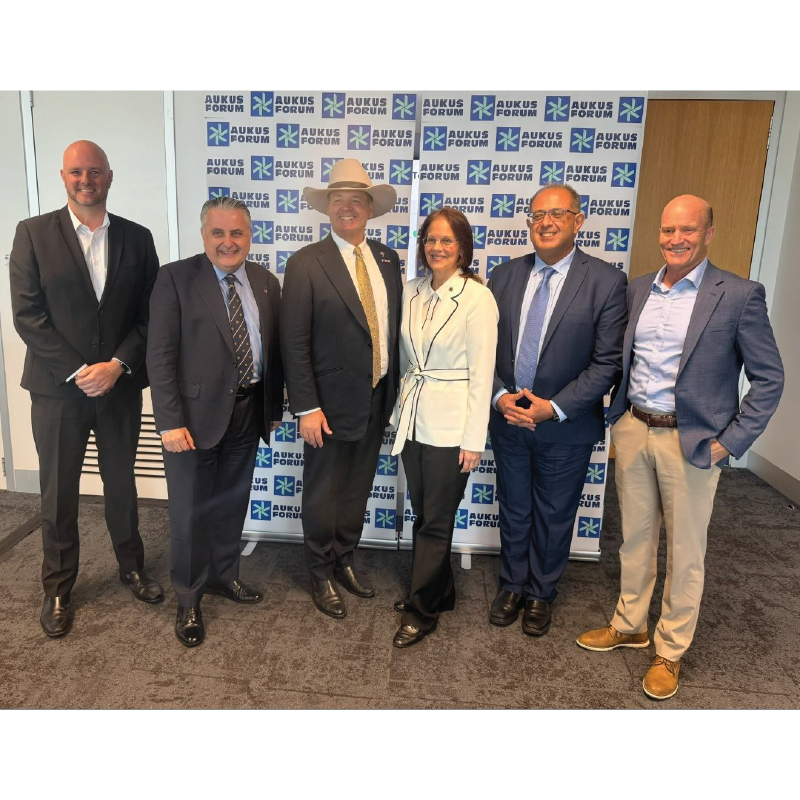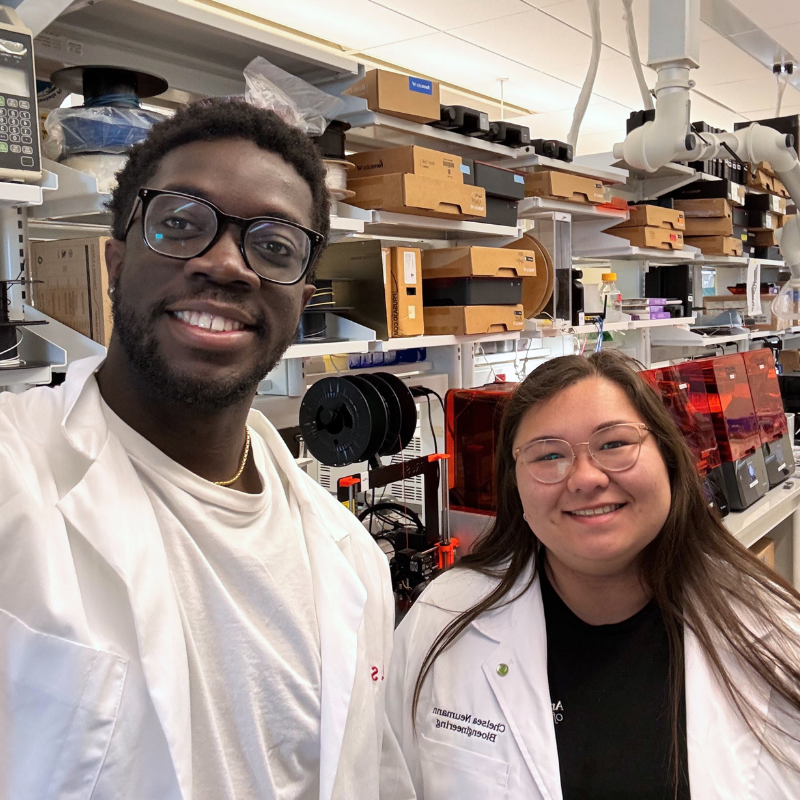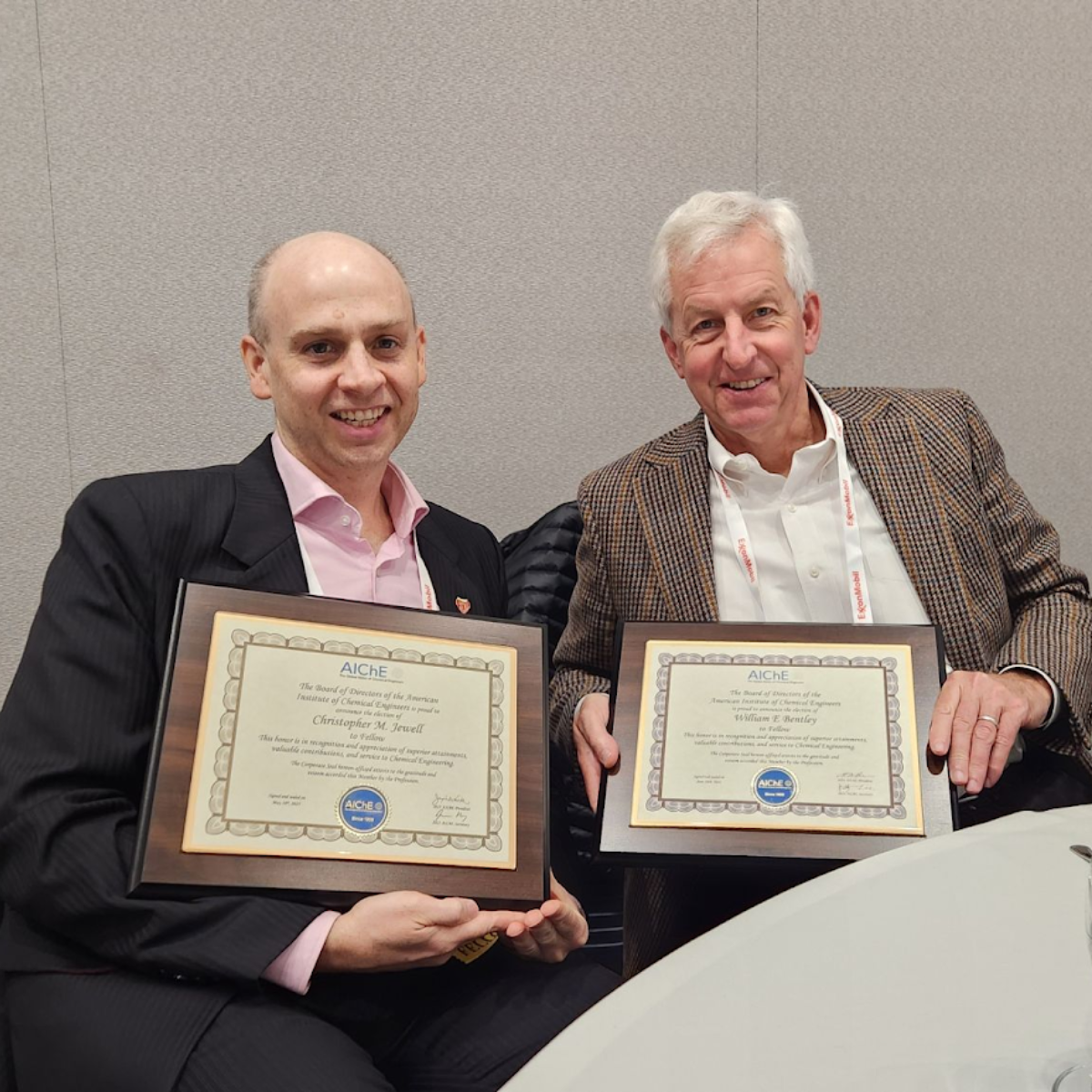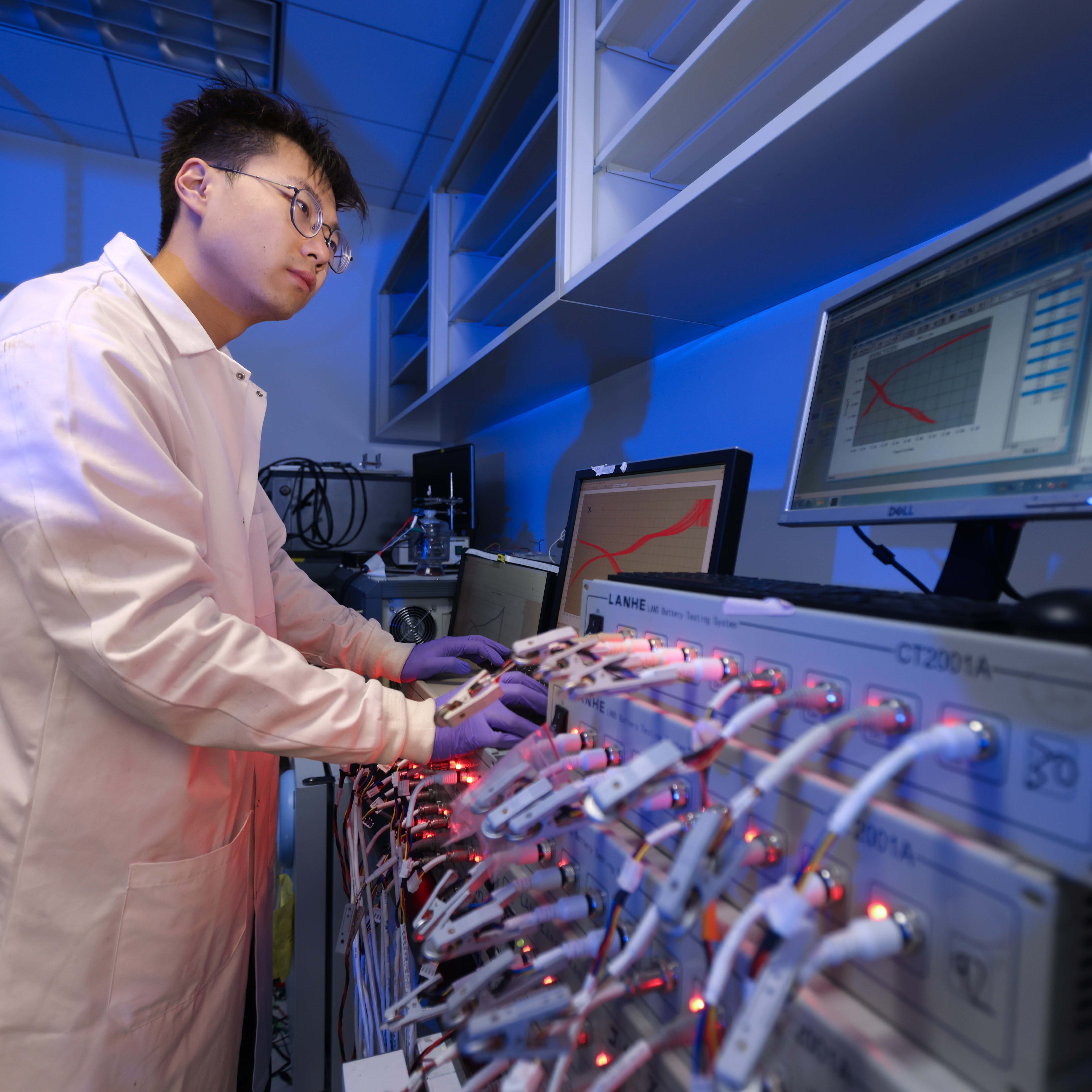News Story
Fischell Institute Hosts 2025 High School Shadow Day
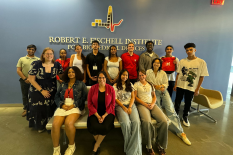
The Robert E. Fischell Institute for Biomedical Devices hosted its annual High School Shadow Day on Thursday, August 7, in A. James Clark Hall.
The program, led by Fischell Institute Communications and Program Specialist Ambi Narula, welcomed ten high school students from College Park Academy and Prince George’s, Howard, and Montgomery counties interested in biomedical engineering and the A. James Clark School of Engineering.
Narula opened the event with an overview of the institute, including its history, team members, areas of expertise, and mission.
Fischell Foundry Engineer Quinn Burke followed with a presentation on medical device and implant examples, including cardioverter-defibrillators, artificial hips and pacemakers.
“It was a rewarding experience to teach these students about what we do at the institute, and to show them the various tools and processes we use to make devices,” said Burke.
Arsalan Siddiqui, Fischell Institute and MPower Entrepreneurship fellow alumnus, then introduced the day’s hands-on project: designing and building a pill crusher. He explained that pill crushers are essential for people who cannot swallow whole pills due to various disorders or muscle weakness.
Working in four teams, the students sketched designs for their pill crushers. Burke, Siddiqui, MPower Fellow Kelly Yeung and incoming MPower Fellow Joel Bannerman then demonstrated how to translate each team's sketches into 3D models using computer-aided design software. Once finalized, the designs were sent to 3D printers.
Yeung explained the 3D printing and device manufacturing process. During lunch, Clark School Director of Recruitment and Outreach Programs Erin Wessell discussed the engineering school’s admission process and answered questions from attendees.
Students then toured the institute’s lab, where they saw 3D printers and other fabrication machines used to develop device components, as well as devices the institute has developed, including the KeyScope, Yeung’s Bag Valve Mask, and Siddiqui’s circular surgical stapler for gastrointestinal anastomosis.
The day concluded with a presentation by Assistant Director Martha Wang on FDA regulatory pathways for medical devices. Students then tested their 3D-printed pill crushers, compared their designs to commercial products, and reflected on what they had learned.
“It is a joy to see the students’ excitement about biomedical devices, and that they learned something new during the program,” Narula said. “I look forward to this event every year.”
Published August 13, 2025
